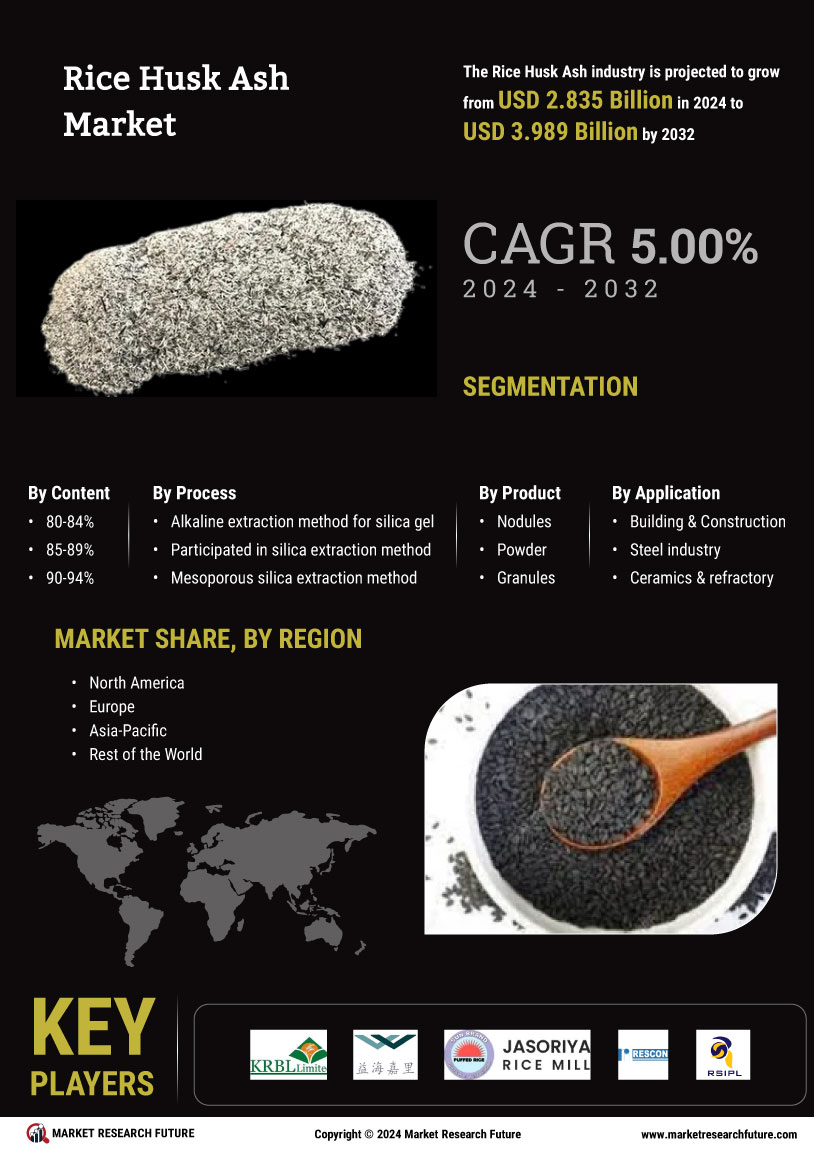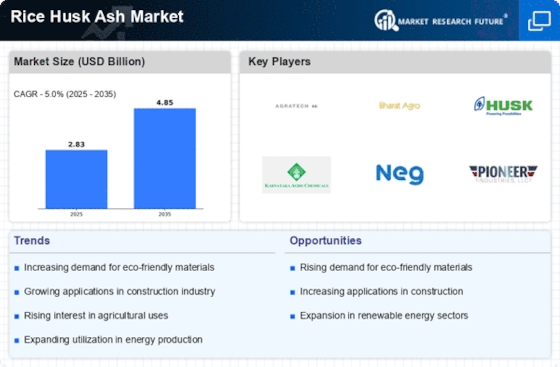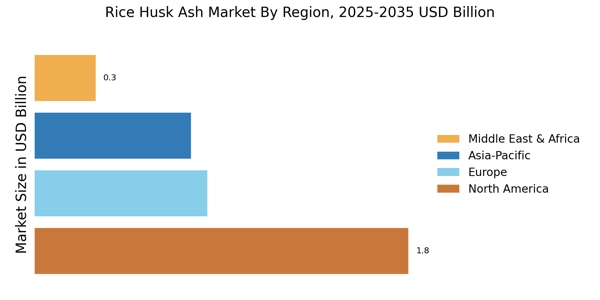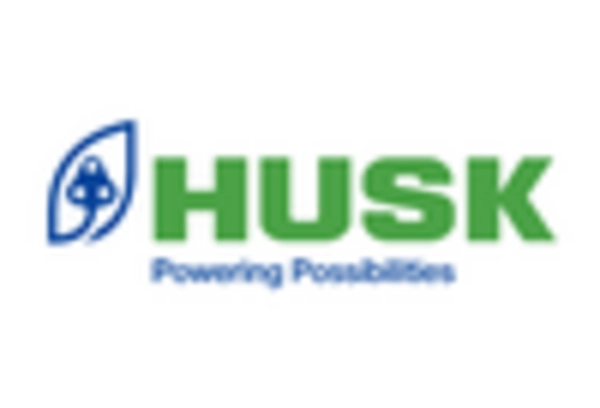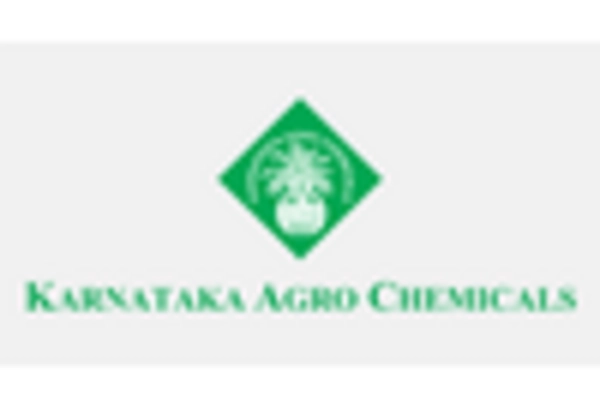Regulatory Support
Government regulations promoting the use of sustainable materials are likely to bolster the Rice Husk Ash Market. Many countries are implementing policies aimed at reducing carbon footprints and encouraging the use of waste materials in construction. For instance, regulations that mandate the use of alternative materials in concrete production could lead to a surge in the adoption of rice husk ash. This regulatory support not only enhances the market's credibility but also encourages manufacturers to invest in research and development. As a result, the Rice Husk Ash Market may benefit from increased visibility and acceptance within the construction sector.
Construction Sector Growth
The expansion of the construction sector is likely to significantly influence the Rice Husk Ash Market. With urbanization and infrastructure development on the rise, the demand for construction materials is increasing. Rice husk ash is being recognized for its potential as a supplementary cementitious material, which can enhance the durability and strength of concrete. Market data suggests that the use of rice husk ash in concrete can reduce carbon emissions by approximately 20%, making it an attractive option for environmentally conscious builders. As the construction industry continues to evolve, the Rice Husk Ash Market may see a corresponding increase in demand for this innovative material.
Sustainability Initiatives
The increasing emphasis on sustainability appears to be a pivotal driver for the Rice Husk Ash Market. As industries and consumers alike seek eco-friendly alternatives, rice husk ash, a byproduct of rice milling, emerges as a viable option. Its utilization in construction materials, such as cement and concrete, not only reduces waste but also enhances the mechanical properties of these materials. Reports indicate that the incorporation of rice husk ash can improve compressive strength by up to 30%. This trend aligns with the broader movement towards sustainable practices, suggesting that the Rice Husk Ash Market is likely to experience growth as more stakeholders prioritize environmental responsibility.
Rising Demand in Agriculture
The agricultural sector's growing interest in organic farming practices appears to be a significant driver for the Rice Husk Ash Market. Rice husk ash is being utilized as a soil amendment due to its high silica content, which can improve soil fertility and structure. Additionally, its application in organic farming aligns with the increasing consumer preference for organic produce. Market analysis indicates that the use of rice husk ash in agriculture can enhance crop yields by improving nutrient availability. This trend suggests that the Rice Husk Ash Market may experience growth as more farmers adopt sustainable practices.
Innovative Product Development
The ongoing innovation in product development within the Rice Husk Ash Market is likely to create new opportunities. Companies are exploring various applications of rice husk ash beyond construction and agriculture, including its use in ceramics, plastics, and even as a potential biofuel. This diversification of applications could lead to increased demand and market expansion. Furthermore, advancements in processing techniques may enhance the quality and functionality of rice husk ash, making it more appealing to various industries. As these innovations unfold, the Rice Husk Ash Market may witness a transformation, attracting new players and investment.
